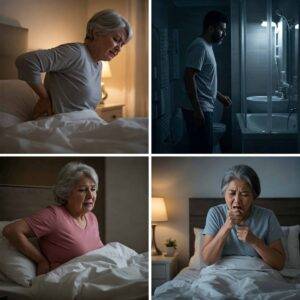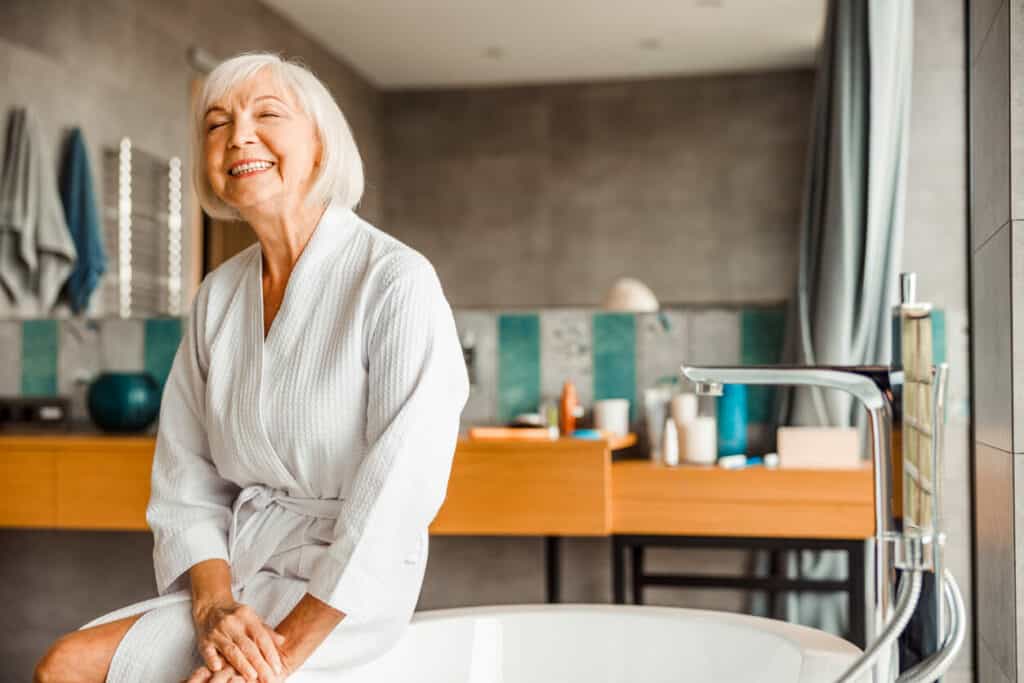
When you’re young, bathing is the easiest and most enjoyable personal care task. But when you’re older, and your body has less energy to stand in front of the shower or soak in the tub, it becomes a task that most older people only do when they remember.
Bathing is one of the daily self-care rituals everyone should not neglect in old age for many reasons. If you’re a family caregiver, we know how challenging it is to help a loved one with extra needs take a shower.
The bathroom is the riskiest place for seniors with mobility issues or difficulty balancing, so it’s best to ensure it’s safe by installing tools to help make bathing easier. If you can’t take on the task, finding a caregiver who provides shower assistance for elderly people is the best course of action. Amy’s Eden provides caregivers that can make your elderly loved one’s bathing experience safe and easy.
Falls Rank Second as the Leading Cause of Deaths
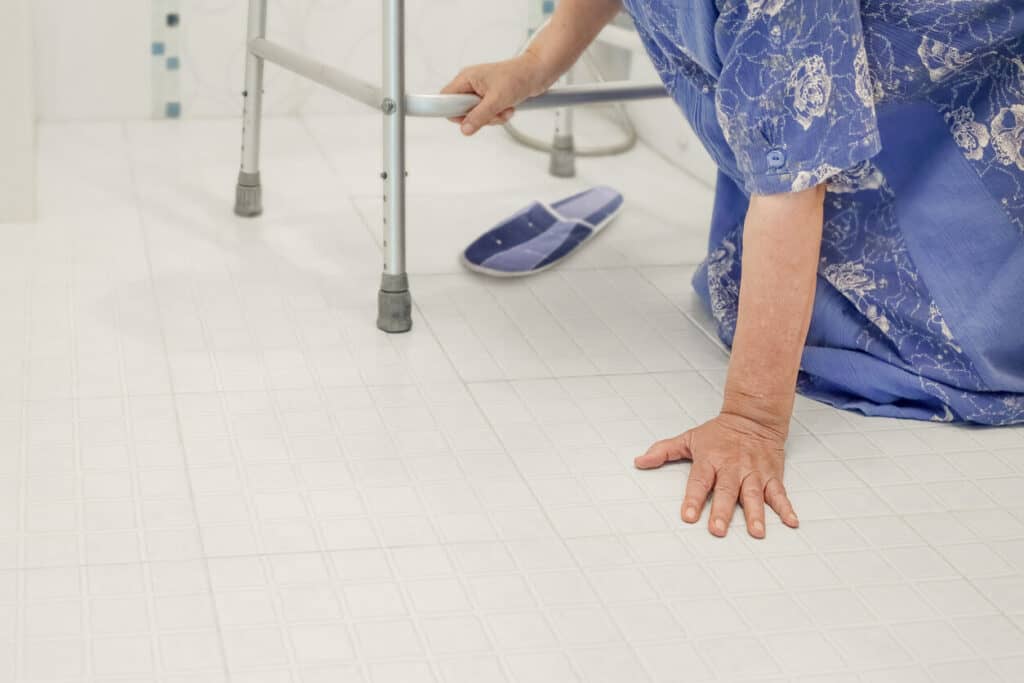
Based on the WHO data, falls are the second leading cause of injuries that lead to deaths around the world. Roughly 684,000 people die from falls, with people over 60 having the highest number of fatalities.
Most American homes are not built with older adults in mind, so they can be dangerous. For example, the lack of grab bars in the bathroom will increase the risk of falls and unintentional injuries. If you live with a senior, installing bathroom equipment and making simple modifications can be a lifesaver for seniors and caregivers providing shower assistance for elderly people.
Bathroom Additions To Prevent Falls and Slips
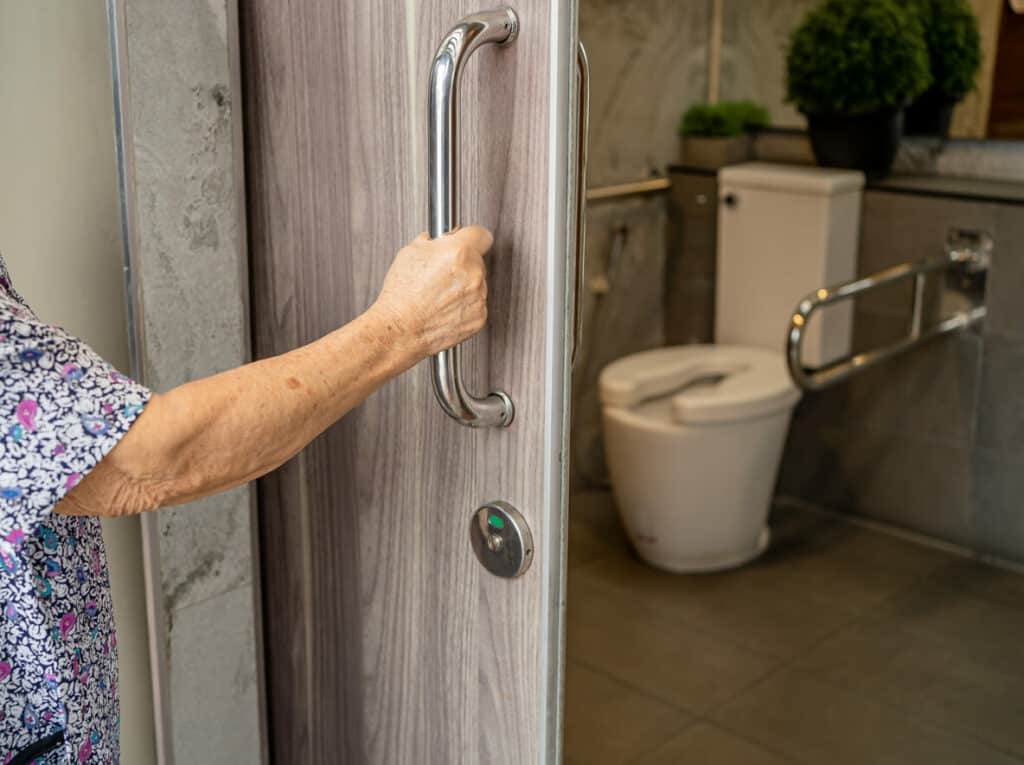
Adding grab bars in home areas that a senior loved one frequents, such as the bathroom and kitchen, can help prevent falls. Experts called grab bars the new seat belts because they’re an inexpensive addition to protect the life of people aging in place. Grab bars are safety tools that could save seniors from broken bones and expensive hospital bills.
Here are Amy’s Eden recommendations to fall-proof your bathroom.
- Non-slip mats and rugs
These things have high traction to increase safety on wet floors and avoid slips, another common elderly safety concern in the bathroom.
- Shower chair
If a senior relative has health issues that affect their balance and can’t stand in front of the shower, a shower chair can help them shower comfortably. The sitting position minimizes unnecessary movements and allows them to easily reach part of their body that needs to be cleaned.
- Handheld shower head
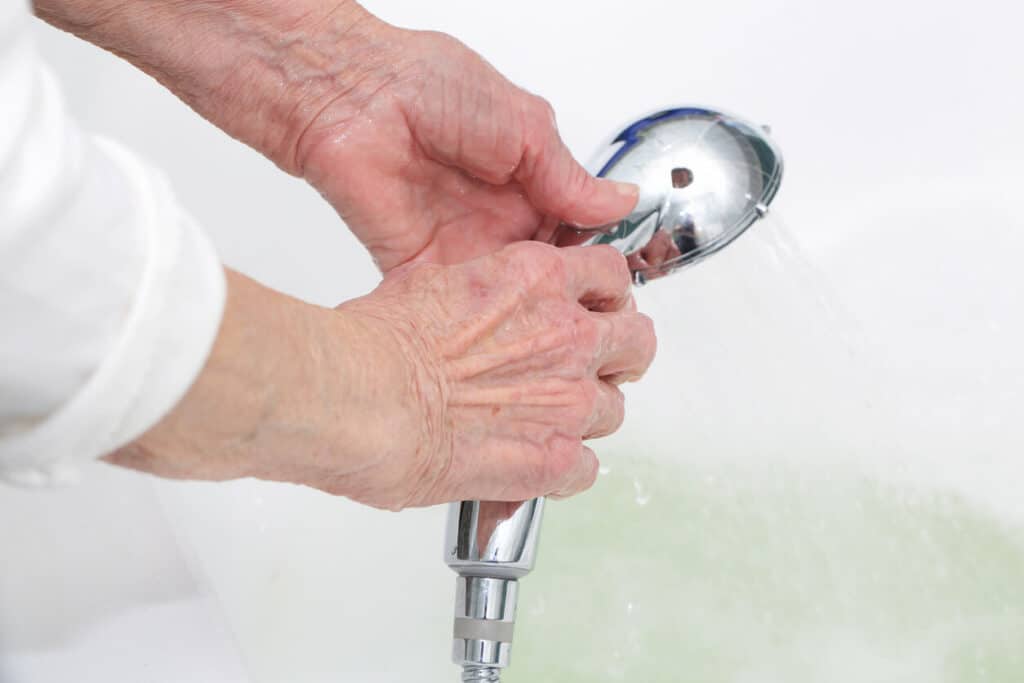
Using a handheld shower head is safer and makes it less difficult for people living with a physical disability to do bathing alone. Unlike a wall-mounted shower head where your loved one needs to move around to rinse the soap and shampoo off their body, a handheld shower provides control and limits the movement when bathing.
If your loved one cannot use the handheld shower head by themselves, a caregiver can provide shower assistance service for your elderly mom or dad with respect and privacy.
- Raised toilet seat
Installing an assistive device provides extra support for seniors to access and use the toilet independently. It can decrease the impact on the knees and other joints when squatting, so your loved one can stand easier after using toileting.
- Shower curtain
Some seniors with physical challenges may prefer unlocking the bathroom door when they use the toilet. Add a shower curtain to maintain privacy.
- Motion sensor lights
When a loved one wakes up in the middle of the night to use the bathroom, they may feel disoriented and struggle to find the switch. Installing motion-activated bathroom lights ensures that there’s enough illumination every time they open the bathroom door to see where they are walking.
- Wall-mounted help button
Many seniors wear a necklace or a bracelet to alert their caregivers during emergencies. Wall-mounted help buttons provide another layer for seniors needing immediate help in high-risk areas, such as the bathroom, in case they misplace or forget to wear their medical alert device. They can ask for help with a push of a button.
If you can, hire a caregiver once or twice a week to provide bathing assistance for an elderly parent. A professional carer can ensure that your loved one steps out of the bathroom safely, which gives peace of mind.
8 Bathroom Safety Tips for Seniors
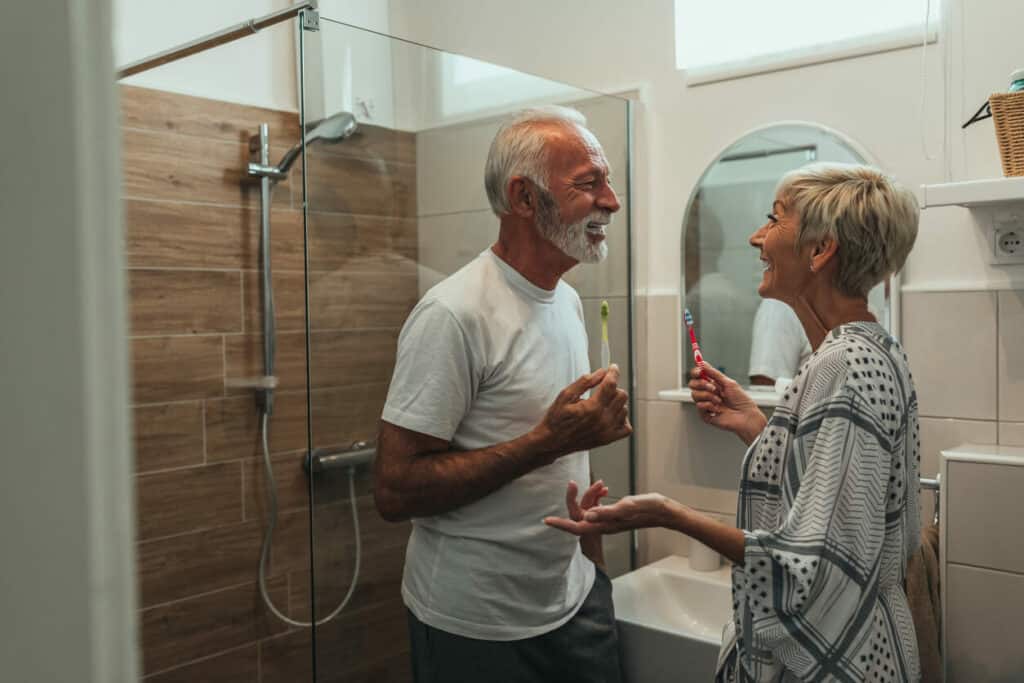
Seniors brush their teeth, wash their hands, and do most of the hygiene tasks in the bathroom. Besides installing safety tools, here are the top 8 caregiver and home care tips to make this area of your home safe.
- Whether it’s you or a caregiver who will provide bathing assistance for your elderly loved one, ensure the bathroom floor is dry before a senior loved one steps into it. If it’s wet and slippery, wipe it with a dry rug.
- Remove clutter on the floor, such as a scatter rug, that can cause them to trip over. The path into the bathroom should be clear, especially if a loved one uses a walker.
- Place all bathroom essentials, such as towels, soaps, and shampoos, on the vanity where they are at arm’s reach and won’t need your loved one to bend over.
- Use pump soap or body wash instead of bar soap and bath products on sachets. Dispensable bath products are safer for seniors to use and make less mess on the floor.
- Make sure there’s adequate lighting inside the bathroom to support loved ones with vision impairment.
- Secure the non-slip mats or rugs on the floor.
- Don’t rush your loved one when they’re showering. Sudden movements could lead to slips and fall. Let them take their time in washing off the dirt, oil, and other distinct body odor.
- If your senior relative requires bathing assistance for the elderly because they can’t do it alone, be there when they’re showering, but maintain privacy by helping them when they ask first.
4 Ways To Find Shower Assistance Services Near You
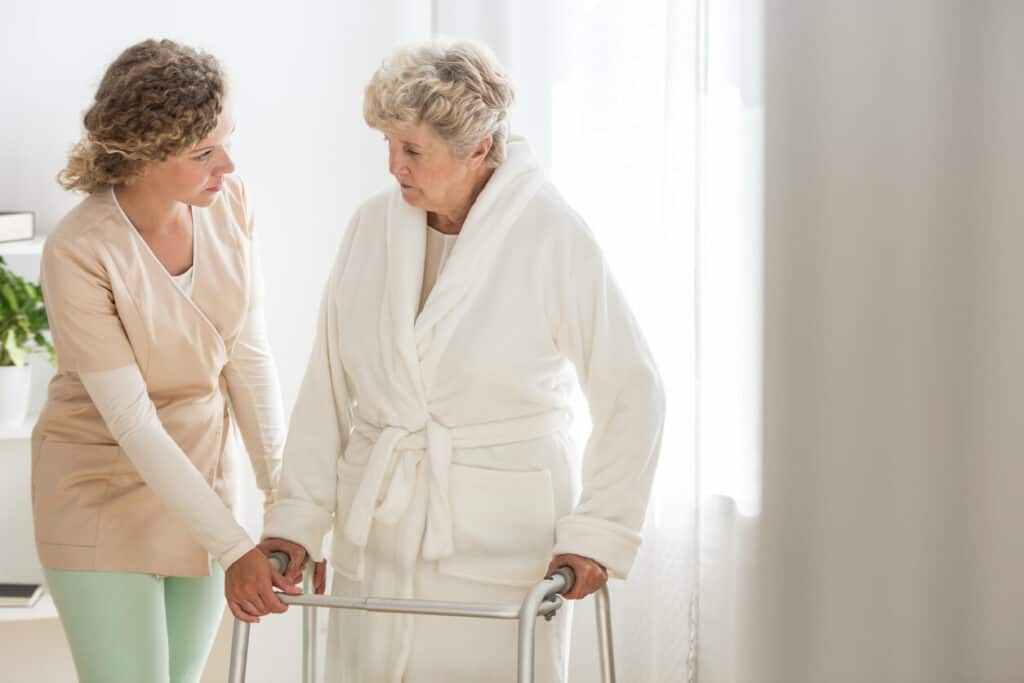
It can be taxing to do all the care tasks alone. If you’re an adult child to a senior parent and need backup help completing light household chores, preparing meals, and elderly shower assistance, below are some places to find nonmedical care services.
1. Private care providers
Perhaps you have a neighbor, a friend, or someone within your network who is a personal care assistant or a home health aide who doesn’t work for an agency. You can ask if they can help you and your loved one for a couple of hours every day to manage other personal care tasks, including bathing.
2. Personal care agencies
Over two million people are currently employed in the home care providers industry. There should be at least one personal care agency near you that can provide shower assistance and other care services to an elderly loved one whenever you cannot.
You can easily find a home care agency by searching on Google. In the search bar, you can type “personal care services near me” or “shower assistance in Minden, NV.
Google will display the most relevant results at the top of the search engine page. Take your time to choose which agency to hire. Remember to visit the agency’s site and read reviews to make sure it’s licensed.
If you live in Nevada, Amy’s Eden offers in-home care services, including elderly shower assistance in multiple cities. Contact us to know if we’re available in your area.
3. Online directories

Websites like Caring.com and Alzheimer’s Association have a dedicated directory and helpline to connect you with reliable non-medical care providers, including if your loved one is living with dementia.
4. Area Agencies on Aging (AAA)
Your local Area Agency on Aging can coordinate and offer varying levels of care to help seniors age at home and be self-sufficient. Connect with a local AAA by entering your zip code or city and state to get the address and contact numbers of your local AAA.
Creating a Relaxed and Safe Bathing Experience for Seniors
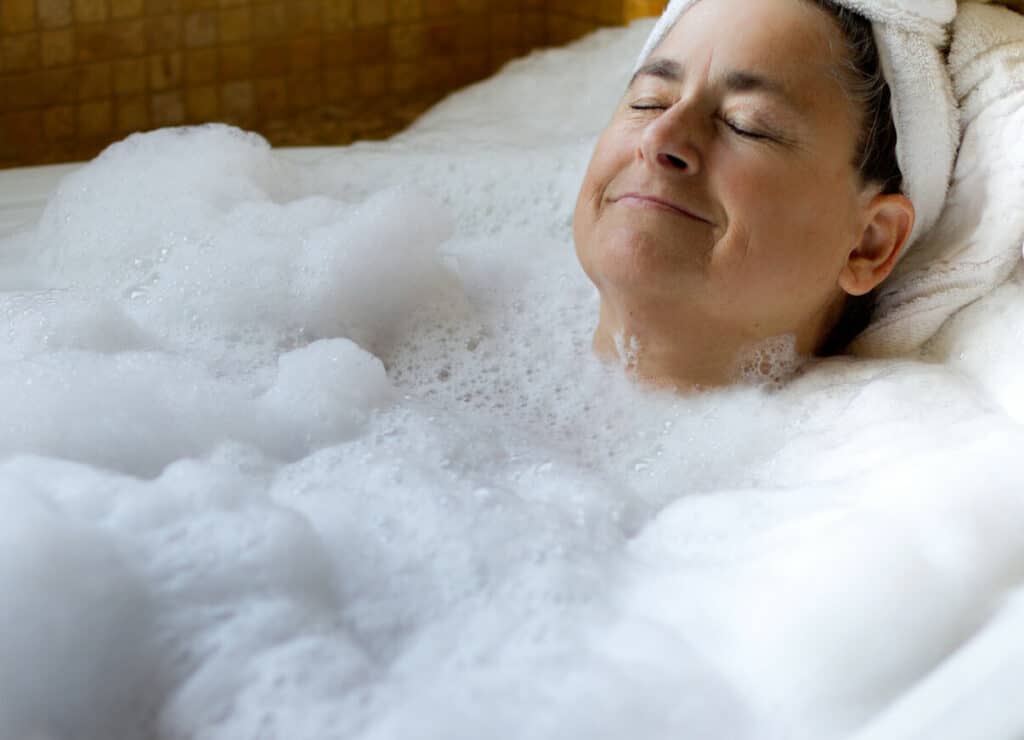
Bathing can be tedious, but it’s a crucial daily ritual that can help your loved one maintain clean and healthy skin. Like washing hands, taking a shower washes away bacteria, grease, and dirt that could cause skin infections and other health problems.
Be sure your senior loved one takes a shower at least once or twice a week and uses warm washcloths on other days. Reducing their shower time between 5 to 10 minutes is ideal so their skin doesn’t dry out, especially during winter.
Need an in-home caregiving service to provide bathing assistance for an elderly relative? Contact us today and get $4 off your first 20 hours of in-home care!




